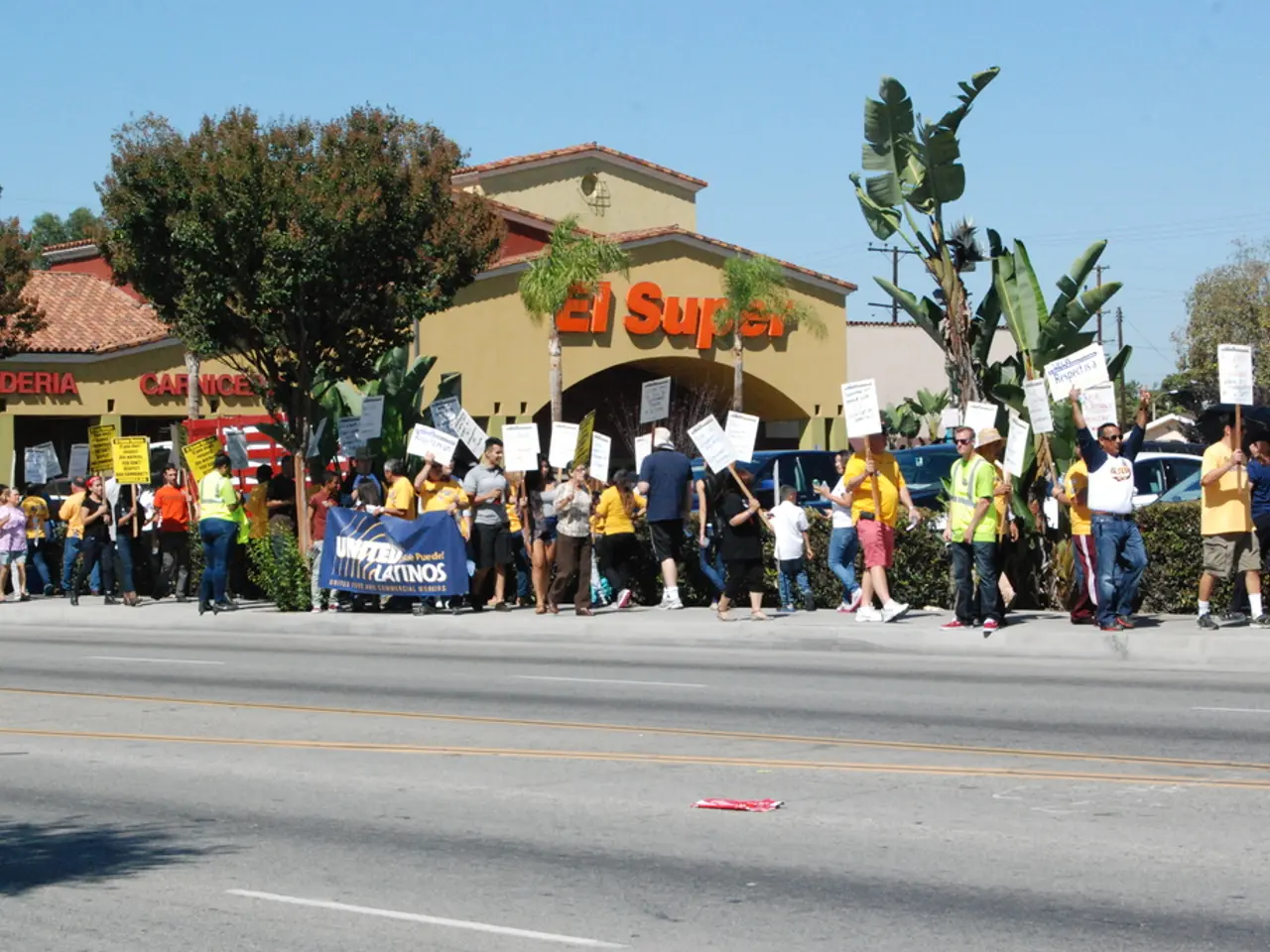Political Party Showdown: Exploring Policies of Labour and Conservatives, and Their Current Standings in Polls
In today's UK General Election (4 July), voters will decide the future of the nation. Two main parties, Labour and the Conservatives, have presented their manifestos, outlining their promises and positions on various issues. Here's a breakdown of some key points from each party.
Labour, led by Keir Starmer, has pledged to lead a "changed Labour Party" that champions wealth creation and is pro-business. Starmer has promised not to raise income tax, National Insurance, or VAT. He believes a big Labour majority would be "better for the country".
One of Labour's key education promises is to convert over 3,000 classrooms into nurseries in schools with spare capacity, creating 100,000 additional nursery places. To fund this policy, Labour plans to end tax breaks for private schools.
In terms of housing, Labour has promised to overhaul the private rental sector, immediately abolishing no-fault evictions, and empowering renters to challenge unreasonable rent increases. The party also plans to shut down the leasehold system. However, first-time buyers may face a hike in stamp duty if Labour wins the election, with the first-time buyer stamp duty exemption threshold dropping back to £300,000.
Labour has also unveiled a "Freedom to Buy" pledge to help 80,000 young people become first-time buyers over the next five years. The party aims to improve building safety regulation to address issues like mould and damp, and to "ensure we never again see a repeat of the Grenfell fire".
On the other hand, the Conservatives, led by Rishi Sunak, have promised a 2p National Insurance cut and to permanently scrap stamp duty for first-time buyers, up to a threshold of £425,000. The Conservatives have also promised to abolish no-fault evictions.
The Conservatives' headline pledge was a tax cut, with a promise to increase the threshold at which the child benefit charge kicks in, from £60,000 to £120,000, and to move to a system where the entire household's income is taken into consideration.
However, critics have said the Conservative manifesto isn't radical enough to close Labour's comfortable lead in the polls. Some argue that a Conservative government, particularly under leaders like Friedrich Merz, is expected to oppose tax increases and instead pursue policies favoring lower taxes and potentially cutting social benefits to prioritize other expenditures like defense.
Both parties have committed to keeping income tax thresholds frozen until 2028. A Labour government is likely to implement higher taxes on top earners and wealthier individuals, including possibly wealth and inheritance taxes, to address inequality and fund social programs.
As the polling day approaches, the next UK Prime Minister will be decided by voters. Whether it's Keir Starmer or Rishi Sunak, the new leader will face debates on balancing fiscal responsibility and social fairness in upcoming tax reforms.
Read also:
- United States tariffs pose a threat to India, necessitating the recruitment of adept negotiators or strategists, similar to those who had influenced Trump's decisions.
- Weekly happenings in the German Federal Parliament (Bundestag)
- Southwest region's most popular posts, accompanied by an inquiry:
- Discussion between Putin and Trump in Alaska could potentially overshadow Ukraine's concerns








